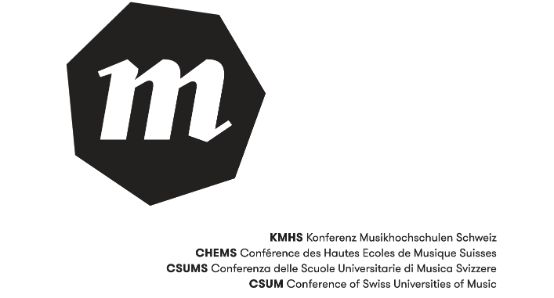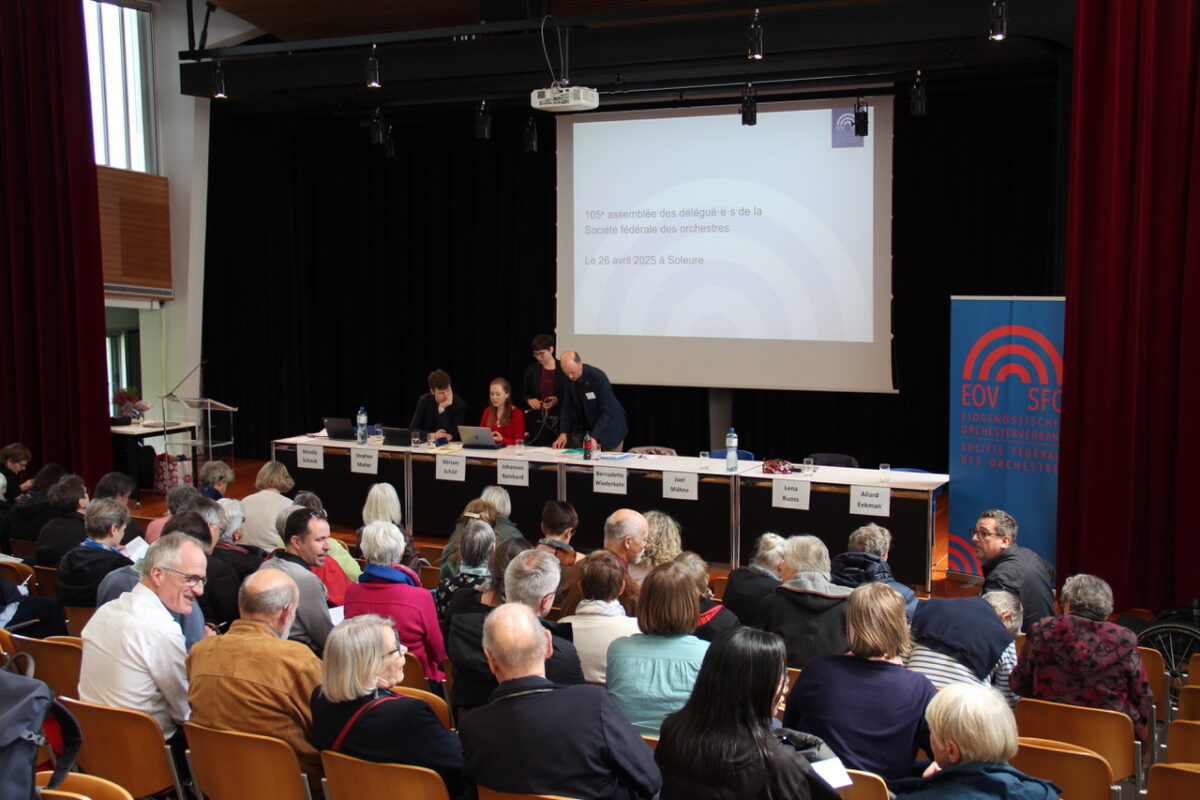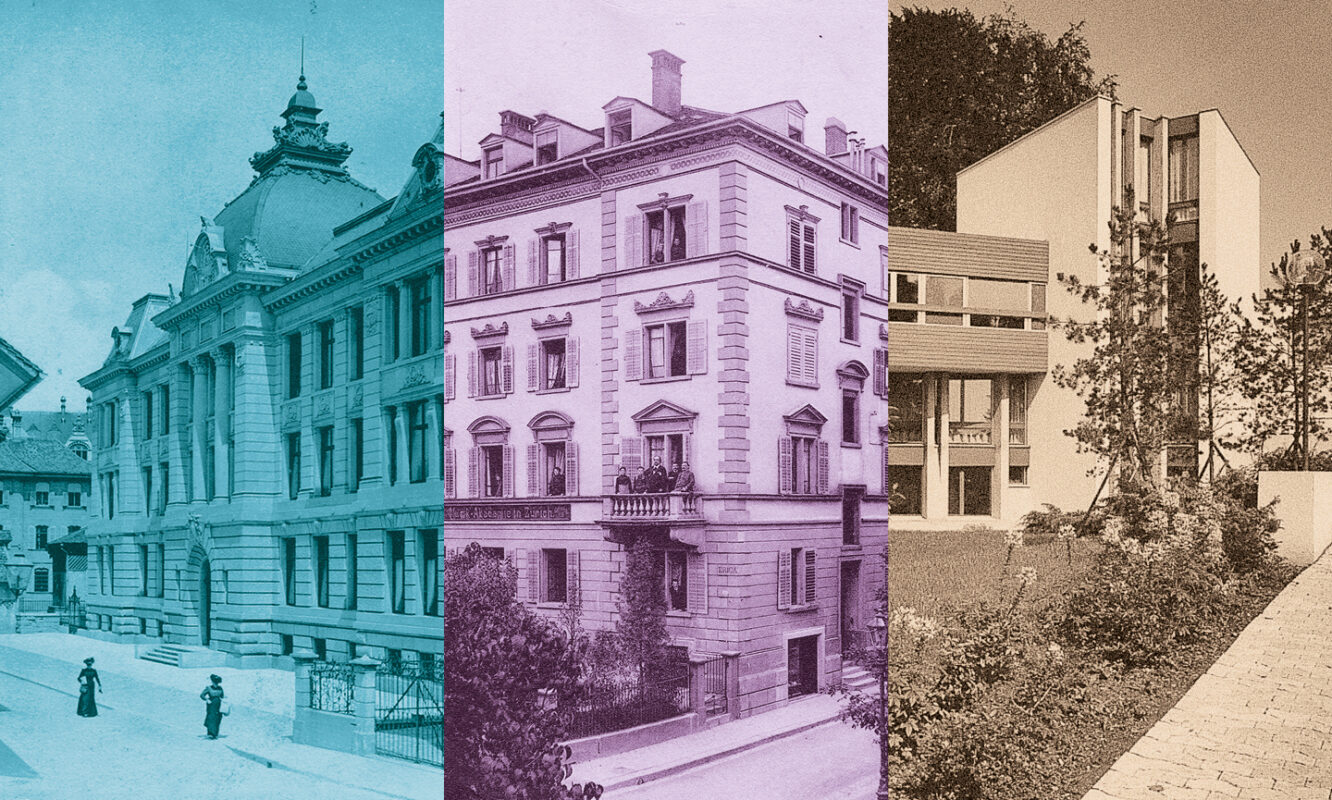Measuring music: via competitions and rankings
Competitions and rankings are also an issue within universities of music. This issue focuses on the importance of competitions and their impact on the perception of a university. In the next issue, the topic of rankings will be highlighted.

Philippe Dinkel - The notion of ranking confronts art schools with an insoluble paradox: measuring the quality of a course or an institution using quantitative criteria. Certainly, one can quantify the number of applications in relation to the number of students admitted, the level of professional insertion or even the volume of research or continuing education activities - a little like the Shanghai ranking, which adds to the number of scientific publications or the number of Nobel prizes associated with that university. But does the analysis tell us more about the profile of the school in question and the reasons for preferring it to another?
In truth, every high school of art is the product of a unique history and geography, characterized by personalities - professors and students - who are still today so striking that the structure of the curriculum (at least in the western countries) has become much more homogeneous since the implementation of the Bologna reform. Its genetic code distinguishes it from its predecessor in an indubitable way and explains a good part of its specific attractiveness. He also explains why such a student wants to perfect himself with such an admired master within such an artistic community. Finally, he justifies the need to cultivate the diversity of conservatories, in the manner of all living species.
Thus, the development tools of a high school of art are not sought in the place it occupies on I don't know what Olympic podium, but rather in gaining awareness and understanding of the unique and irreplaceable position it occupies among its peers, both close and distant. Confident in its identity, it is therefore projecting itself more confidently into the future by focusing on its qualities and on its distinctive attributes, all the while engaging in a fruitful dialog with its natural environment and its consumers.
One more word on the notion of excellence: although it is often associated with the technical and artistic mastery of the composer or performer, it should not obscure other perceptions, such as those related to transmission and social openness. These are measured not so much in terms of the level of attack on the microphone or the applause, but rather in terms of the harmonious effect produced on the development of a child or a disadvantaged group, which has a direct or indirect impact on the well-being of society as a whole. It is ultimately about the place of music in our lives.
Philippe Dinkel
... est directeur de la Haute école de musique de Genève.
Matthias von Orelli - The Berlin-born cellist Nadja Reich has been studying with Thomas Grossenbacher at the Zurich University of the Arts since 2013.
Nadja Reich, did the university's ranking play a role in your choice of music university?
For me, the choice of music university depended on the main subject lecturer. Admittedly, I only got to know the word ranking in connection with universities in the course of my studies.
Which competitions have you entered and won so far?
I have won first prizes in the following competitions: International Hindemith Competition Berlin, Kiwanis Competition of the ZHdK, International Suggia Competition (Porto) as well as a study prize of the Migros Culture Percentage. I received special prizes or second prizes at the following competitions: Tonali Competition (Hamburg), Orpheus Competition (Bern), Kiefer Hablitzel Göhner Music Prize, Contemporary Music Competition of the ZHdK. I came away empty-handed from these: Instrument Competition of the German Foundation for Musical Life, Final of the Prix Credit Suisse jeunes solistes, Soloist Competition of the Schenk Foundation.
What are your experiences, both positive and negative, with competitions?
Competitions offer challenges. I see my own progress as the goal of a competition - in preparation, I consistently work critically on myself to get one step ahead. I can't fool myself too much and I push myself to my limits to be able to perform under pressure. You get to know yourself; you learn to assess yourself. Exchanging ideas with other musicians allows me to see what I can continue to work on myself, what appeals to me and inspires me, and so on. But depending on the atmosphere, it can also be an oppressive competition.
What impact does winning a competition have on your future career? And what effect does a negative one have?
Positive effects are being noticed, getting feedback and resonance. I can make contacts through a competition and get concert opportunities. In my experience, losing a competition has no consequences, you just try again next time, do it differently, better. You have to try to protect your self-esteem from jumping to conclusions. However, it can also be healthy not to do well everywhere. You can then continue to accept your own questioning, self-criticism or dissatisfaction, get up again and try again.
What makes a good competition, what are the points of criticism from your point of view?
The measurable and perfection in the "craft" often play off free interpretation and spontaneity or do not necessarily support these aspects of music-making in their deepening. It is not really possible to measure music as a whole. So much is also based on the personal impression you make and your taste. I think it's great when competitions give you the opportunity to deepen your own interests or become aware of them through a rather free choice of program. I like to create programs and am happy when I can give free rein to my curiosity. This often makes it easier for me to stick with something over a longer period of time and find my own personal way of implementing it bit by bit.
Georges Starobinski - The importance of competitions in the curriculum of music students varies greatly depending on the field of study. In some specialized Master's programmes at the Basel School of Music, Classical Music, concert and competition activities are part of the curriculum, for example in the Chamber Music, Lied, Soloist and Contemporary Music courses. However, this is not the case at the other institutes of the university (Schola Cantorum Basiliensis and Jazz), which also has to do with the different competition cultures. Of course, students from other fields of study (especially from the Master's in Performance) take part in competitions, as good competitions can play a very positive role in launching a career, for example when they provide prizewinners with performance opportunities for a few years, advise them on PR or support them with contractual issues. For example, the "Psychophysiological audition and audition training" course in Basel is very popular as preparation. Like all Swiss music academies, the Basel School of Music also works with some competitions in Switzerland, for example when only a limited number of candidates are admitted on the recommendation of the university management.
Success at prestigious competitions is important for the international reputation of a university and for the reputation of lecturers among their peers. And finally, the best students want to study in classes that are of a particularly high standard. On the other hand, it should not be forgotten that the reputation of a university is based on excellence in all areas of a diverse and networked educational offering that is only partially compatible with the profile of the competitions. It would therefore be wrong to reduce the relevance and impact of an education purely statistically to competition successes, which are only representative of a minority of students.
The landscape of music competitions in Switzerland is broad and diverse in classical music, limited in jazz and regrettably almost non-existent in early music. The most visible are the five competitions that are members of the World Federation of International Music Competitions. In an international comparison (122 members), this number is high for the size of our country, especially when you consider that we enjoy a very high international appeal in competitions. At the center of the Swiss competition landscape is the Concours de Genève (founded in 1939) as the oldest and most open competition in terms of disciplines. It is surrounded by very prestigious competitions dedicated to an instrument and the memory of a great musical personality: Clara Haskil International Piano Competition (since 1963 in Vevey, every two years), Tibor Varga International Violin Competition (since 1967 in Sion, every two years) and the Concours Géza Anda (since 1979 in Zurich, every three years). Migration from Eastern Europe has left its mark on the Swiss competition landscape! As expected, it is the solo instruments par excellence (piano and violin) that are represented there.
In addition to these summits, there are other competitions that significantly expand our landscape, either because they are dedicated to a specific repertoire (Concours Nicati, Soundzz.z.zzz...z competition for contemporary music, ORPHEUS - Swiss Chamber Music Competition for chamber music) or because they are explicitly national in scope, such as those of the Schenk Foundation, the Foundation for Young Musical Talent Meggen, the Prix Credit Suisse Jeunes Solis- tes, the Kiefer Hablitzel Göhner Music Prize or the Migros Culture Percentage study prizes.
The Swiss Youth Music Competition, which also has a specialist jazz and pop commission chaired by Bernhard Ley, head of the Basel Jazz Institute, is important, especially for young talent in Switzerland. However, it is the only national jazz and pop competition in our country. The situation is actually not much better abroad. However, there are efforts to introduce a competition culture for jazz and pop. This means that there is a varied and sought-after competition landscape in Switzerland, in which only early music is missing. You have to go abroad for that.
Georges Starobinski
... is the director of the Basel School of Music, Classical Music








